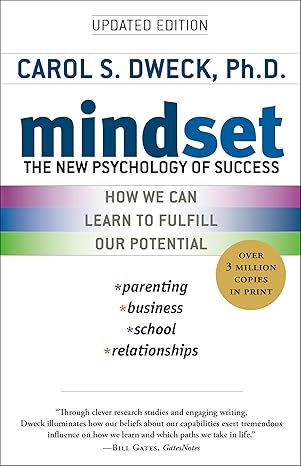The Hidden Psychology of Male Success After 40: A Practical Guide to Mental Resilience and Lasting Change
Stuck at 40-something, wondering when life got so... predictable? You're not alone. And here's the thing nobody tells you: your brain is still wired for massive change—you just need the right psychological framework to unlock it.
Most guys hit their 40s and feel like they're running on autopilot. Same routines, same frustrations, same nagging feeling that there's supposed to be more. Maybe your body doesn't respond like it used to. Maybe your bank account looks nothing like you imagined at 25. Maybe you wake up and wonder, "Is this really it?"
The answer is no. But getting unstuck requires understanding the hidden psychology that keeps successful men moving forward while others stay trapped in the same patterns year after year.
Disclosure
This article contains affiliate links. If you choose to make a purchase through these links, we may earn a commission at no additional cost to you.
Let's Get Real: Why Most Advice Doesn't Work for Us

You've probably heard the standard self-help mantras: "Just think positive!" "Visualize your success!" "You can do anything you set your mind to!"
Yeah, that's garbage. Not because positive thinking doesn't matter—it does—but because those platitudes ignore the reality of being a man over 40.
You've got responsibilities. A mortgage. Maybe kids. Aging parents. A body that needs more recovery time. Financial commitments that limit your options. You can't just quit your job to "follow your passion" or spend three hours a day meditating on a mountaintop.
The psychological framework we're sharing here is different because it's built for real life. It acknowledges your constraints while showing you how to create meaningful change within them. It's rooted in the Triangle of Well-Being—the interconnection between your physical health, mental resilience, and financial independence.
Because here's what actually matters: when you understand the psychology behind sustainable change, you stop spinning your wheels and start making progress that compounds over time.
Quick Start: Your 5-Minute Psychology Shift
Before we dive deep, try this right now:
- Identify one limiting belief – What's one thing you tell yourself about why you can't change? (Example: "I'm too old to get in shape")
- Write down the opposite belief – Flip it. (Example: "My age gives me wisdom to train smarter, not harder")
- Take one small action that proves the new belief – Do something tiny today. (Example: Do 10 push-ups or a 5-minute walk)
- Repeat daily for 7 days – Track it. Notice how the new belief starts feeling more real than the old one.
That's neuroplasticity in action. Now let's understand why it works.
The Three Psychological Pillars of Male Success After 40
Success after 40 isn't about one big breakthrough moment. It's about understanding and applying three interconnected psychological principles that create lasting transformation:
These aren't separate concepts—they work together like the three sides of a triangle. Master one, and the others get easier. Ignore one, and the whole structure weakens.
And here's the crucial part: these psychological principles don't just affect your mindset. They directly impact your physical health and financial decisions. When you reconstruct your identity, you naturally start making different choices about your body and money. When you develop strategic thinking, you approach fitness and finances with the same clarity. When you take action, momentum builds across all three pillars.
Let's break down each pillar and show you exactly how to apply them.
Pillar 1:
Identity Reconstruction
(Who You Think You Are Determines What You Do)
Most men over 40 are living with an outdated identity. You're still operating from beliefs you formed in your 20s and 30s—beliefs about what you're capable of, what you deserve, and who you're supposed to be.
The problem? Those beliefs were formed by a younger version of you who didn't have your current experience, wisdom, or understanding of what actually matters.
The Identity Trap
You might identify as:
- "The guy who never finishes what he starts"
- "Someone who's just not good with money"
- "Too old to be in great shape"
- "Not the type to take risks"
- "The responsible one who puts everyone else first"
These identities feel true because you've reinforced them with years of consistent behavior. But here's the psychological truth: identity is not fixed. It's a story you tell yourself, and you can rewrite it.
How to Reconstruct Your Identity
Step 1: Identify Your Current Identity Statements
Write down 5-10 statements that start with "I am..." or "I'm the type of person who..."
Be honest. Include the negative ones. These are your current operating beliefs.
Step 2: Question the Evidence
For each negative identity statement, ask: "Is this actually true, or is this just a pattern I've repeated?"
Most of the time, you'll realize it's just a habit, not a truth.
Step 3: Create New Identity Statements
Rewrite each limiting identity as the person you're becoming:
- "I never finish things" → "I'm someone who follows through on what matters"
- "I'm bad with money" → "I'm learning to make smarter financial decisions"
- "I'm too old to get fit" → "I'm building sustainable strength for the long haul"
Step 4: Take Identity-Confirming Actions
This is where psychology meets reality. Your brain believes what you do, not what you say.
If you want to be "someone who follows through," start with something tiny you can actually complete. Finish one book. Complete one week of workouts. Save $50 this month.
Each small completion rewrites your identity at a neurological level.
The Mind-Body-Money Connection
This isn't just about mindset—when you shift your identity, everything changes. If you start identifying as "someone who takes care of their body," you naturally make different choices about sleep, nutrition, and movement. If you identify as "someone who's building wealth," you start noticing opportunities and making different spending decisions.
Want to dive deeper into how your identity shapes your financial future? Check out Understanding Your Money Story: Breaking Generational Patterns. And if you're ready to explore who you're meant to become, read Finding Your Purpose: It's Not Too Late to Follow Your Dreams.
Pillar 2:
Strategic Mindset Development
(Thinking Like a Man Who Wins)
Here's what nobody tells you about success after 40: it's not about working harder. You've already proven you can grind. What separates guys who thrive from guys who stay stuck is strategic thinking.
Strategic mindset means approaching your life like a chess game, not a sprint. It's about making decisions that compound, eliminating what drains you, and focusing your limited energy on what actually moves the needle.
The Four Components of Strategic Mindset
1. Systems Over Goals
Goals are fine for direction, but systems create results. Instead of "I want to lose 30 pounds," think "I'm building a system where I move my body daily and eat protein at every meal."
The goal might fail. The system becomes who you are.
This applies to every area: Building Strength After 40 isn't about hitting a one-time PR—it's about creating a sustainable training system. Creating Your First Emergency Fund isn't about saving $1,000 once—it's about building a system where you automatically save every month.
2. Energy Management Over Time Management
You can't create more hours in the day. But you can protect and optimize your energy.
Strategic thinkers ask: "What drains me?" and "What energizes me?" Then they ruthlessly eliminate energy vampires and double down on what fuels them.
Yeah, your knees hurt. Mine too. So instead of forcing yourself through workouts that wreck you for three days, you train smarter. You prioritize recovery. You understand that Sleep Better Tonight isn't lazy—it's strategic.
3. Progress Over Perfection
Perfectionism is the enemy of progress after 40. You don't have time to wait for perfect conditions or perfect knowledge.
Strategic mindset means taking imperfect action and adjusting as you go. Start the workout program even if you don't have the perfect gym setup. Begin the side hustle even if you don't have all the answers. Save $50 this month even if the "experts" say you should save more.
Done beats perfect. Every single time.
4. Antifragility – Getting Stronger From Stress
Life after 40 brings stress. Job pressure. Family obligations. Health concerns. Financial anxiety.
Strategic thinkers don't try to eliminate stress—they use it as fuel for growth. This is antifragility: the ability to get stronger from challenges rather than being broken by them.
When you approach obstacles as training opportunities rather than roadblocks, everything shifts. That financial setback becomes a lesson in resilience. That injury becomes an opportunity to learn proper recovery. That career challenge becomes a chance to develop new skills.
Want to build this kind of resilience? Start with Stress-Proofing Your Life: A Mid-Life Man's Guide and explore Meditation for Skeptics: A Practical Approach.
Building Your Strategic Mindset: The Weekly Review
Here's a practical system I use and recommend to every guy over 40:
Every Sunday, spend 15 minutes answering these questions:
- What worked this week? (What gave me energy, progress, or clarity?)
- What didn't work? (What drained me or moved me backward?)
- What's one thing I'll do more of next week?
- What's one thing I'll do less of or eliminate?
- What's my ONE priority for the week ahead?
This simple practice develops strategic thinking by forcing you to reflect, adjust, and focus. Over time, you'll notice patterns. You'll see what actually moves the needle versus what just keeps you busy.
Pillar 3:
Action-Oriented Psychology
(Motion Creates Emotion)
Here's the truth about psychology that most self-help gurus won't tell you: you can't think your way into a new mindset. You have to act your way into it.
All the identity work and strategic thinking in the world won't matter if you don't take action. But here's the good news: you don't need massive action. You need consistent, intelligent action that builds momentum.
This is where the rubber meets the road. This is where the Triangle of Well-Being becomes real.
The Action-Psychology Loop
Most guys have it backward. They think: "I'll take action once I feel motivated."
But successful men understand the real sequence:
Action → Results → Motivation → More Action
You don't wait to feel like working out. You work out, feel better, and then want to do it again. You don't wait to feel confident about money. You save your first $50, feel the security, and then want to save more.
Motion creates emotion. Always.
The Three Types of Action That Matter
1. Foundation Actions (Physical Wellness)
These are the non-negotiables that keep your body and brain functioning optimally:
- Sleep 7-8 hours – Not optional. Your brain literally cleans itself during sleep. Sleep Better Tonight: The Foundation of Health shows you how.
- Move daily – Doesn't have to be intense. A 20-minute walk counts. Building Strength After 40: A Beginner's Roadmap gives you the framework.
- Eat protein at every meal – Stabilizes blood sugar, preserves muscle, keeps you full. Simple but powerful.
- Hydrate – Yeah, we know. But dehydration kills mental clarity and physical performance.
These aren't sexy. But they're the foundation everything else is built on. Skip them and your psychology suffers. Your decision-making suffers. Your energy suffers.
2. Growth Actions (Mental Resilience)
These are the practices that build psychological strength:
- Daily reflection – 5 minutes. Journal, meditate, or just sit quietly. Process your day. Meditation for Skeptics makes this accessible.
- Learn something new – Read 10 pages. Watch one educational video. Keep your brain plastic.
- Face one fear – Small ones count. Have the difficult conversation. Try the new exercise. Make the phone call you've been avoiding.
- Practice gratitude – Sounds cheesy. Works anyway. Three things you're grateful for, daily.
These actions rewire your brain. They build the mental resilience that carries you through setbacks and keeps you moving forward when motivation fades.
3. Progress Actions (Financial Independence)
These are the small financial moves that compound over time:
- Track one expense category – Don't try to budget everything. Pick one area (coffee, eating out, subscriptions) and just track it for a week.
- Save something – Even $10. The habit matters more than the amount. Start your emergency fund with whatever you can.
- Learn one financial concept – Compound interest. Tax brackets. Index funds. One concept per week adds up to 52 per year.
- Increase income by $1 – Sell something. Do a side gig. Ask for a small raise. Prove to yourself that income isn't fixed.
That 401k you ignored for a decade? Not judging. But today's the day you start paying attention. Small financial actions build confidence, which leads to bigger actions, which leads to real wealth over time.
Want to understand how your physical health directly impacts your financial future? Read Health & Wealth: How Physical Wellness Impacts Your Financial Future.
The Minimum Viable Action Plan
Don't try to do everything. Start with the absolute minimum across all three pillars:
Physical: 10 minutes of movement + 7 hours of sleep
Mental: 5 minutes of reflection
Financial: Track one expense + save $1
That's it. That's your starting point. Do this for 7 days straight. Then reassess.
The psychology here is simple: you're proving to yourself that you can follow through. You're building identity through action. You're creating momentum.
Finding Your Starting Point: Where Are You Right Now?

Not everyone starts from the same place. Your psychology, resources, and circumstances are unique.
Here's how to apply this framework based on where you are today:
Starting Point A: The Established Professional
Your Reality: Decent income, stable career, but feeling unfulfilled or stuck. You've achieved external success but something's missing internally.
Your Psychological Challenge: Identity is tied to your career role. Fear of change because you have more to lose. Comfort has made you risk-averse.
Your Action Plan:
- Identity Work First – Who are you beyond your job title? Spend 30 days exploring this through journaling and the identity reconstruction exercises above.
- Strategic Audit – What's draining your energy? What would you do if money wasn't a factor? Use the weekly review system to identify what needs to change.
- Micro-Experiments – Don't quit your job. Test new identities through side projects, hobbies, or volunteer work. Prove to yourself that change is possible before making big moves.
- Physical Reset – Your body is probably neglected. Start with sustainable strength training and better sleep.
- Financial Optimization – You're earning well but probably not optimizing. Learn about how health impacts wealth and explore your financial independence category.
Starting Point B: The Paycheck-to-Paycheck Worker
Your Reality: Working hard but barely getting by. Financial stress is constant. You feel trapped by circumstances.
Your Psychological Challenge: Scarcity mindset. Belief that change isn't possible for "people like you." Exhaustion from just surviving.
Your Action Plan:
- Mindset Shift First – Your circumstances are real, but they're not permanent. Start with the 5-minute psychology shift exercise. Prove to yourself that small changes are possible.
- Foundation Actions – Focus on free or cheap actions: walking, bodyweight exercises, better sleep, drinking water. These cost nothing but improve everything.
- Financial Micro-Wins – Don't try to save $1,000. Save $10. Then $20. Build the identity of "someone who saves" before worrying about the amount.
- Skill Building – Invest 30 minutes daily learning a skill that could increase your income. Free resources are everywhere (YouTube, library, online courses).
- Break the Money Story – Your beliefs about money are probably inherited. Read Understanding Your Money Story to identify and change these patterns.
Starting Point C: The Complete Beginner
Your Reality: You're just waking up to the fact that you need to change. You're overwhelmed and don't know where to start.
Your Psychological Challenge: Analysis paralysis. Fear of doing it wrong. Tendency to research forever without taking action.
Your Action Plan:
- Pick ONE Pillar – Don't try to fix everything. Choose physical wellness, mental resilience, or financial independence. Start there.
- Follow the Minimum Viable Action Plan – The one I outlined above. Do it for 30 days. Nothing else.
- Read ONE Book – Pick one from the recommendations in this article. Read it. Apply one idea from it.
- Find ONE Accountability Partner – A friend, family member, or online community. Someone who's also trying to change.
- Celebrate Small Wins – Completed one week of the minimum viable plan? That's a win. Acknowledge it. Your brain needs positive reinforcement.
The 90-Day Progressive Implementation Plan
Here's how to systematically apply this psychological framework over the next three months:
Month 1: Foundation & Identity (Weeks 1-4)
Week 1-2: Identity Audit
- Complete the identity reconstruction exercises
- Start the minimum viable action plan
- Begin tracking your daily actions (simple checklist)
- Read: Atomic Habits
Week 3-4: Build Your Foundation
- Focus on sleep, movement, and basic nutrition
- Start the weekly review system
- Identify your biggest energy drains
- Begin optimizing your sleep
Month 2: Strategic Development (Weeks 5-8)
Week 5-6: Systems Thinking
- Convert your goals into systems
- Eliminate one major energy drain
- Add one growth action to your daily routine
- Start a basic meditation practice
Week 7-8: Strategic Optimization
- Review your weekly review data—what patterns emerge?
- Double down on what's working, eliminate what isn't
- Add one progress action (financial focus)
- Learn about building your emergency fund
Month 3: Integration & Momentum (Weeks 9-12)
Week 9-10: Full Integration
- All three action types should be daily habits now
- Focus on consistency, not intensity
- Explore stress-proofing strategies
- Read: Antifragile or Essentialism
Week 11-12: Assess & Expand
- Review your 90-day progress
- Identify your next level of growth
- Set your next 90-day priorities
- Consider exploring your deeper purpose
Common Obstacles & How to Overcome Them

Obstacle 1
"I Don't Have Time"
The Psychology: This is usually about priorities, not time. You have time for what you prioritize.
The Solution: Start with the minimum viable action plan (20 minutes total). If you genuinely can't find 20 minutes, your life needs a strategic audit more than anything else. Use the weekly review to identify where your time actually goes.
Obstacle 2
"I've Tried Everything Before"
The Psychology: You've tried tactics, not systems. You've focused on outcomes, not identity.
The Solution: This framework is different because it addresses the psychological foundation, not just the surface behaviors. Give it 90 days with full commitment before deciding it doesn't work.
Obstacle 3
"I Can't Afford [Gym/Healthy Food/Courses/etc.]"
The Psychology: Scarcity mindset creating learned helplessness.
The Solution: Everything in this article can be done for free or nearly free. Walk instead of gym. Bodyweight exercises. Library books. YouTube education. Save $10 instead of $1,000. Start where you are with what you have.
Obstacle 4
"People Don't Support My Changes"
The Psychology: Your growth threatens their comfort. When you change, it highlights their stagnation.
The Solution: Find your tribe. Online communities, accountability partners, or even just one friend who gets it. You don't need everyone's support—just enough to keep you moving forward. And sometimes, you need to stress-proof yourself against negativity.
Obstacle 5
"I'm Too Old / It's Too Late"
The Psychology: Fixed mindset. Belief that change is only for younger people.
The Solution: Neuroplasticity is real. Your brain can change at any age. The men who succeed after 40 aren't special—they just decided it wasn't too late and took action anyway. Read Finding Your Purpose: It's Not Too Late to Follow Your Dreams for proof.
Frequently Asked Questions
Absolutely. Neuroplasticity—your brain's ability to form new neural pathways—doesn't stop at 40. In fact, your 40s bring advantages younger men don't have: experience, perspective, and clarity about what actually matters. The key is consistent action that reinforces new patterns.
You'll notice psychological shifts within 7-14 days of consistent action. Measurable external results (physical changes, financial progress) typically appear within 30-60 days. Lasting transformation that feels permanent usually takes 90-180 days of consistent application.
You likely tried tactics without addressing the underlying psychology. This framework is different because it starts with identity and mindset, then builds systems, then focuses on action. Most approaches do it backward. Give this 90 days with full commitment.
No. If you're overwhelmed, pick one pillar and focus there for 30 days. However, understand that the three pillars are interconnected—improving one naturally supports the others. The minimum viable action plan touches all three with minimal time investment.
Expect setbacks. They're part of the process. The difference between success and failure isn't perfection—it's how quickly you get back on track. Miss a day? Start again the next day. No guilt, no shame, just resume. This is antifragility in action.
Your Next Steps: Choose Your Path
You've got the framework. You understand the psychology. Now it's time to choose.
You can close this article and go back to your regular life, hoping things will somehow change on their own. Or you can decide that today is the day you start applying these principles.
Here's what we recommend:
If You're Ready to Start Right Now
- Do the 5-minute psychology shift exercise from the beginning of this article. Right now. Not later.
- Choose your starting point (A, B, or C) and commit to the action plan for that level.
- Start the minimum viable action plan today. Not Monday. Today.
- Set a reminder for Sunday to do your first weekly review.
If You Need More Foundation First
Explore the three pillars in depth:
- Physical Wellness – Start with better sleep and sustainable strength training
- Mental Resilience – Explore meditation and stress management
- Financial Independence – Begin with your money story and emergency fund basics
If You Want the Big Picture:
Read The Triangle of Well-Being to understand how all three pillars work together to create lasting transformation.
Then come back here and start your 90-day implementation plan.
Final Thoughts: The Psychology of Starting

The hardest part isn't the work. It's the decision to begin.
Right now, you're at a crossroads. One path leads back to the familiar patterns that got you here. The other leads toward the man you're capable of becoming.
The psychology of successful men after 40 isn't complicated. It's about identity, strategy, and action. It's about understanding that your brain is still plastic, your body is still capable, and your financial future is still unwritten.
It's about deciding that 40-something isn't the end of possibility—it's the beginning of your most powerful decade.
The question isn't whether you can change. The question is: will you?
Start today. Start small. Start now.
Your future self is counting on it.
Our latest Posts
Disclosure
This article contains affiliate links. If you choose to make a purchase through these links, we may earn a commission at no additional cost to you.
Important Note: The information in this post is meant to educate and inform, not to replace professional mental health care or psychological advice. While we’ve spent years studying mental resilience and personal development, we’re not licensed mental health professionals or therapists. Everyone’s life circumstances and mental health journey are unique, so what works for one person might not work for another. If you’re experiencing serious mental health challenges, please reach out to a qualified mental health professional. Some of the strategies discussed may not be suitable for everyone, and it’s important to assess your own situation carefully. By reading and using this information, you’re taking responsibility for your own decisions. Remember, seeking help is a sign of strength, not weakness. Stay resilient!













